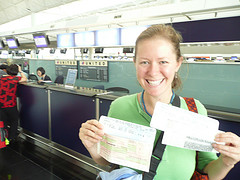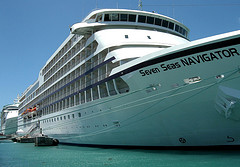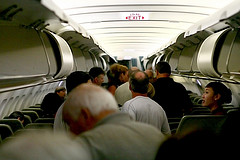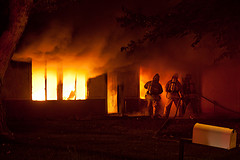 Here’s a worst-case scenario we recently read: Â a group of girlfriends was traveling through Spain when a young man bursts around a corner, smashing into the group and knocking several of the young women violently to the ground. A second young man races by, grabs two of their purses, and sprints down another alley.
Here’s a worst-case scenario we recently read: Â a group of girlfriends was traveling through Spain when a young man bursts around a corner, smashing into the group and knocking several of the young women violently to the ground. A second young man races by, grabs two of their purses, and sprints down another alley.
Ouch!
Inside each of those purses were their passports and every money-retrieving option the young women had: their cash, ATM card, and credit cards – all gone.
3 Steps to Being Prepared and Avoiding Purse or Wallet Theft
- In crowded areas, consider wearing a money belt under your clothing and store your passport, cash, credit cards, and ATM card there instead. It’s very difficult to steal when it’s not hanging off your shoulder or in your back pocket.
- Have a sheet of your account numbers and bank phone numbers with you, but have a system of switching the numbers by one or two digits (so the hotel staff can’t find it and use it illegally). If your wallet is stolen, you’ll have the necessary information to report it to the police and cancel the cards.
- Make a copy of your passport identification page and leave one behind with a friend or family member, pack the other with you. (Again, store it safely when you arrive.) This will help if you need to replace your passport.
- Before you leave, get a back up card from your bank or have a secondary credit card on hand and stored in a different place. You’ll still have the headache of reporting the theft and canceling all the stolen cards, but you’ll have a way to get around and continue your trip.
We’ve mentioned before that you should not travel with your debit card, for a number of reasons, but many of us forget to clear out our wallets when we travel – especially if we travel frequently.  See these top 6 strategies for protecting your identity on a trip for more information.









